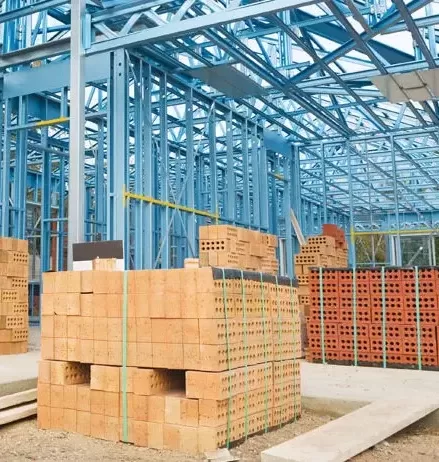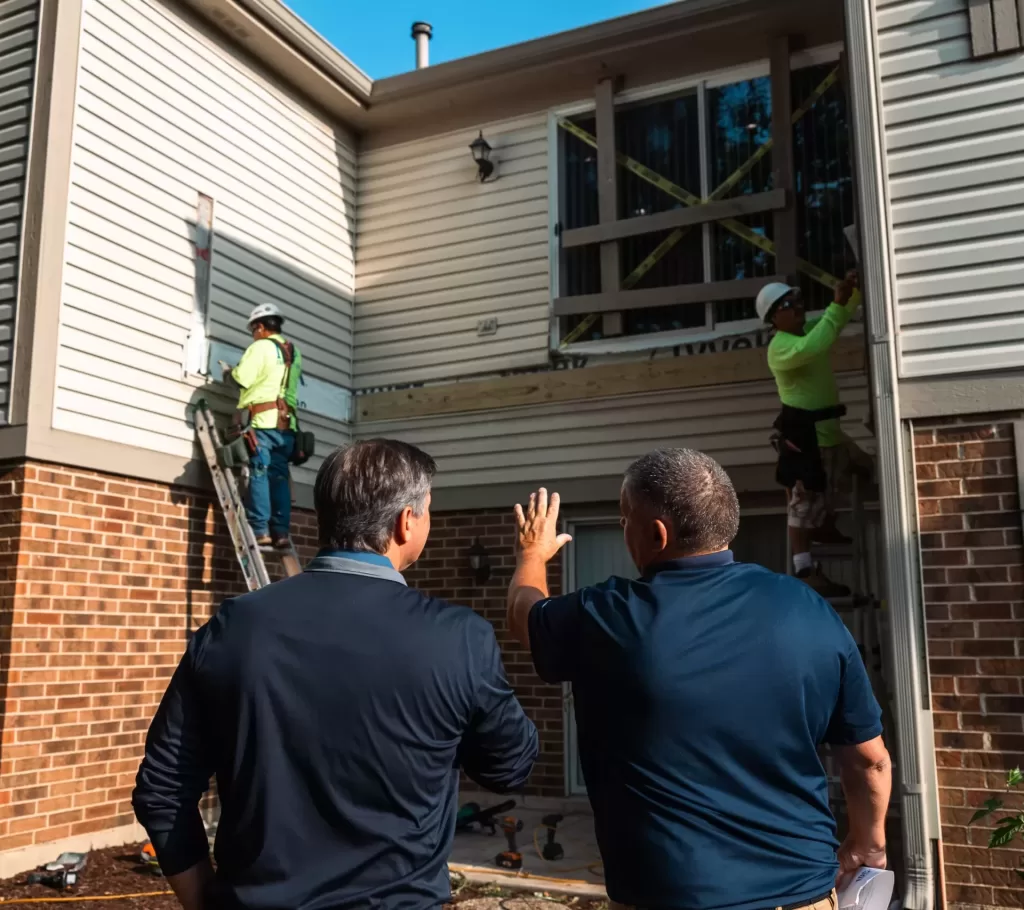Understanding Tariffs and Their Impact on Construction Contracts
Estimated Read Time: 7 Minutes
The Highlights
- Tariffs are government-imposed taxes on imported materials and can significantly affect pricing of many goods.
- Materials like steel, aluminum, and lumber are especially vulnerable to changes in tariff policy.
- Elevation clauses in contracts allow for adjustments if material costs increase during a project.
- Transparent contracts and early conversations with construction professionals help reduce financial risk.
- Proactive planning leads to better control of budgets and project timelines.
Material prices in construction are influenced by many factors—tariffs among them. While tariffs are typically associated with international trade policy, their impact is often felt at the local level, particularly in the cost of construction materials. These costs can influence project budgets, timelines, and contract terms.
For property managers overseeing construction or renovation projects, it is important to understand how tariffs can affect pricing and how to address them through contract language and preconstruction planning. This blog focuses on key considerations and best practices to help navigate these issues effectively.
What Are Tariffs and Why Do They Matter in Construction?
A tariff is a tax placed on imported goods. When applied to construction materials, tariffs can lead to higher prices for products such as:
- Steel and structural metals
- Aluminum components
- Lumber and framing materials
- Manufactured fixtures and mechanical equipment

Even a modest tariff can affect the pricing of materials across a project. For example, a 10% tariff on steel may increase costs not only for structural framing but also for mechanical systems, handrails, and hardware.
These increases may be passed along to project owners unless addressed in the initial contract.
Understanding which materials are subject to tariff risk is a key part of anticipating cost fluctuations and minimizing budget impacts.
Elevation Clauses: A Key Tool for Managing Material Price Changes
An elevation clause is a contractual provision that allows for adjustments in pricing if certain cost conditions—such as material price increases—occur after a contract is executed.
These clauses have become more common due to ongoing market fluctuation and supply chain disruptions.
A well-written elevation clause typically includes:
- Defined timeframes: specifying the window during which price changes may be considered
- Cost triggers: outlining the specific percentage increase that activates the clause
- Clear methodology: describing how price changes will be calculated and validated (e.g., using industry indexes or supplier invoices)
This type of clause is intended to provide a fair and predictable framework for addressing unforeseen cost increases, allowing both the contractor and property owner to manage risk without resorting to informal renegotiations.
Contract Transparency: Why Clarity Matters
The clarity of contract language is critical to a successful construction partnership. Elevation clauses should be clearly written and well understood by all parties prior to contract execution. Property managers should look out for the following warning signs:
- Vague language that lacks specificity about materials, timeframes, or cost thresholds
- Retroactive adjustments that apply to expenses already incurred without prior agreement
- Limited explanation or reluctance to clarify terms before signing
Transparent contract language promotes better decision-making and ensures that all parties share a mutual understanding of the risks and responsibilities involved.
If contract terms related to pricing are not clearly explained upfront, this may be a signal to examine the broader structure and communication approach of the construction team.
Preparing for Cost Increases Through Early Planning

While material costs can fluctuate, unexpected increases do not need to derail a project.
The key is to plan for variability from the beginning and establish procedures for how price changes will be handled.
Property managers are encouraged to ask contractors the following questions before finalizing a contract:
- How are material cost risks addressed in this proposal?
- Which materials in this project are most vulnerable to tariff changes?
- What procedures are in place if significant pricing changes occur mid-project?
Answering these questions early can help minimize confusion later in the project lifecycle. Proactive planning also improves the accuracy of financial forecasting and reduces the likelihood of delays or disputes.
To learn more about how IOC Construction supports property managers in the early planning stages, visit the IOC Construction Services page.
The Role of the Business Development Representative
The business development representative is often the first point of contact for contract discussions. This individual should be prepared to explain all contract terms, including elevation clauses, in a clear and comprehensive manner.
An experienced representative will:
- Explain how elevation clauses apply to your specific project scope
- Provide examples of how similar clauses have been used in past projects
- Offer insights into market trends that could affect material pricing
- Collaborate with estimators and project managers to adjust budgets accordingly
This step is essential for ensuring that property managers are fully informed before signing a contract and that all cost-related concerns are addressed during the proposal stage.
For additional information on the broader market impacts of tariffs on the construction industry, see this industry report by the National Association of Home Builders.
Conclusion
Tariffs are just one of many variables that influence construction costs. However, their effects can be significant—especially when materials are imported or subject to global supply chain pressures.
Property managers who stay informed about the impact of tariffs on pricing—and who partner with construction firms that provide transparent contracts and proactive cost management—are better equipped to keep projects on time and on budget.
By asking informed questions and thoroughly reviewing escalation clauses, stakeholders can reduce risk and ensure a more consistent, predictable path from planning through to completion.
At IOC Construction, we prioritize clarity, collaboration, and cost control at every stage of your project. Let’s build smarter together—connect with us today to get started.
